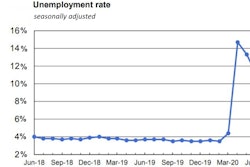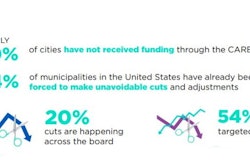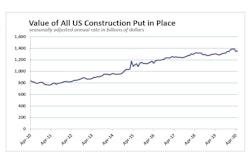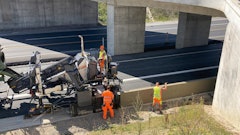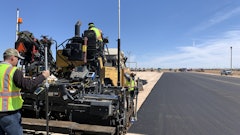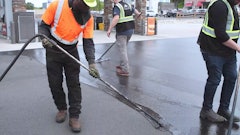
The state of our infrastructure has been in crisis over the last several years with the condition of our roads and bridges getting worse with no funding increases to make them better.
Unfortunately, the Coronavirus pandemic is worsening the problem of infrastructure underinvestment, and the main solution is to increase federal spending in that area, says a new report from the American Society of Civil Engineers (ASCE).
Infrastructure Construction Jobs Decline Even As Construction Adds 158,000 Workers In June
The 14-page report notes that the pandemic has resulted in a falloff in a variety of user-generated revenue sources that support infrastructure, such as gas taxes and other transportation fees, transit receipts and airport income — and offers solutions for Congress to consider in both its short-term emergency response and longer-range economic recovery strategy.
May US Construction Spending Bucked Rising Employment with a 2.1% Drop
Congress should make infrastructure investment a centerpiece of its immediate response and long-term economic recovery strategy. Now is the time to renew, modernize, and invest in our infrastructure to maintain our international competitiveness. — ASCE
IMPACTS – The report details the numerous impacts of COVID-19, including:
- A 49% drop in revenue from the federal Highway Trust Fund in May 2020 compared to May 2019
- A projected 30% revenue decline in the next 18 months for the nation’s state Departments of Transportation (DOTs)
- An estimated $23.3 billion loss in airport revenue due to a 95% decline in domestic air travel
- An estimated decline of 20 to 30% in total annual receipts at ports
- Dramatic nationwide ridership declines in transit systems, such as a 55% decrease in ridership on LA Metro
- Approximately 17% loss in annualized revenue in the drinking water sector, including losses related to suspending water service disconnections
SOLUTIONS – Noting that it is “encouraged” that many of these recommendations are included in H.R. 2, the Moving Forward Act, ASCE urges Congress to:
- Pass a multi-year surface transportation reauthorization, that addresses the solvency of the Highway Trust Fund, before the authorization expires on September 30th, 2020
- Provide $50 billion in immediate, short-term relief for the nation’s state DOTs to ensure that bridges, roads, and transit systems remain safe, reliable, and ready for Americans to resume pre-pandemic routines
- Provide an extra $10 billion in relief to mitigate the pandemic’s growing impacts on the nation’s airports, in addition to the $10 billion provided in the CARES Act
- Provide $1.5 billion to support operations and capital costs at our nation’s seaports, and appropriate $1 billion in supplemental funding for the Port and Intermodal Improvement Program
- Fully fund the High Hazard Potential Dam Rehabilitation Program at the authorized amount of $60 million for 2021 and pass the Dam Safety Improvement Act
- Include federal drinking water and wastewater assistance for ratepayers and provide water agencies with economic relief to combat revenue losses, and allocate an additional $300 million per year in grants for the Drinking Water State Revolving Funds
- Include the Rebuild America’s School Infrastructure Act in future economic relief packages to create a $70 billion grant program and $30 billion tax credit bond targeted at schools in economically disadvantaged communities





